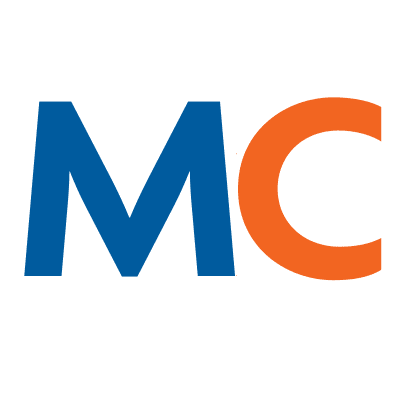- Solutions
- Solutions
- Home Health
- Hospice
- Life Plan Community
- Palliative Care
- Private Duty
- Senior Living
- Skilled Nursing
- Skilled Nursing
- Skilled Nursing Software
- Advanced Insights
- Customer relationship management
- Data and analytics
- Financial & operations management
- Marketing
- Nutrition management
- Referral management
- Regulatory compliance
- Retail management
- Resident engagement
- Revenue cycle management
- Skilled nursing interoperability
- Partners
- Blogs
- Resources
- About
- User Conference

Using technology to scale small home health and hospice businesses
Those who start home health and hospice businesses have taken a leap of faith. They’ve started a new organization with no processes or operations and without much in the way of personnel to support them. But what they do have is a mission — a mission to provide compassionate, quality care to an ageing population. And when these providers have technology that aligns with that mission, they can put their focus on scaling their business and caring for patients.
New home health and hospice agencies are emerging in the market to help support the growing need for home-based care, but how can these organizations scale successfully in an industry rife with staffing challenges?
In this blog, we explore the benefits interoperability can bring to start-ups and small organizations and why MatrixCare is a top choice.
For small agencies, interoperability is the only way forward
Today’s home-based care agencies are doing more with fewer resources as staff continue to be scarce relative to the demand for home health care services. Due to this shift, any time saved is a critical measure of return on investment for providers.
Some of the benefits we see through interoperability are delivered by bringing more information on patients upfront in the care cycle. The clinicians are better informed to start care correctly, they’re also given real-time access as the patient’s care is progressing when the patient, for instance, has encounters either in person or virtually with other community physicians or care providers. There are fewer surprises that can upset the plan for the patient.
This enables caregivers to spend more time caring for patients rather than hunting for patient information — whether related to a change in medications or changes in condition.
Interoperability also goes hand in hand with attracting new employees and retaining existing staff. Our customer, Addison County Home Health & Hospice, experienced this firsthand, growing their staff and operations through tools that simplify documentation and make more time for patient care.
“MatrixCare energizes us and moves us forward… And staff is cash — if you have the staff, you can do anything.”
Deborah Wesley, RN, BN, MSN, MHA, and CEO of Addison County Home Health & Hospice
Patient charts can be well over 200 pages long and no staff member should have to spend the time to comb through that looking for the right information during patient intake. Having access to the power of a system like MatrixCare can be so impactful to a small organization.
Quality analytics mean nothing without quality data
The power of anything a system can do with analytics or artificial intelligence is only as good as the quality of data that is fed to them. Whatever analytics or AI overlays you’re using, improving the quality of the data is going to pay dividends by improving the output. Not only do the provider organizations end up with happier clinicians due to efficiency gains, but when it comes time to represent the value of the care they’re providing to payors, to referral sources and to other stakeholders, they’re going to have much more complete data sets and stories on how they positively impact those patients. Ensuring your EHR is easy to use for clinicians to document quickly and accurately is essential to capturing the correct data, as is the ability for your EHR to leverage what it can consume through the power of interoperability.
Offline capabilities and e-signature simplify a once-manual process
Another technology feature important for small businesses is offline documentation and e-signatures. You want to be able to focus your time on caring for patients, so think about the ability to get orders signed quickly, and to chart offline so you’re not hindered as a small organization having to do all this at night. It’s possible to get very accurate and compliant documentation because of offline capabilities.
The ability to capture documentation offline means that organizations can get much more accurate charting. And through the power of interoperability, they can bring much richer data sets for anything that involves clinical analytics on the patients.
Smaller organizations don’t have 300 clinicians to balance workload or the financial capacity to wait weeks for a physician to sign a care plan. Electronic signature capture changes that.
With our Forcura integration, up to 60% of our users experienced faster turnaround with care plan management, and up to 50% experienced faster onboarding when using the full solution.
AI-powered voice technology delivers peak efficiency
MatrixCare Voice allows clinicians to use their voice to capture clinical documentation, progressively reducing manual documentation while maintaining quality and supporting the regulatory components that come with care coordination — an ideal solution for small organizations looking to create efficient workflows for their teams.
Through this AI-powered technology, clinicians get the tools to transform their satisfaction and productivity. They’re getting hours back in their day and more time to spend with their families and patients — all by using their voice to document care in a way that is much cleaner and more cohesive than speech-to-text.
“I can’t even count the amount of time that we’re saving by having everything at our fingertips. With efficiencies in the system like voice-to-text, we have the ability to type the narrative. It’s not even so much the amount of time, but the accuracy of our documentation.”
Deborah Wesley, RN, BN, MSN, MHA, and CEO of Addison County Home Health & Hospice
A complete vision for the possibilities of interoperability
MatrixCare has a complete vision for what interoperability can do for small home health or hospice agencies that are looking to grow and scale. From the ability to access national networks to thoughtful, workflow-driven solutions with partnerships, our ecosystem strategy is purpose built for small organizations that are looking to scale through the power of technology.
Our ability to partner and deliver those solutions to our customers is born from our Best in KLAS ratings and our customer satisfaction.
Get to know our top solution for start-up and small businesses ready to scale.
Nick Knowlton
Nick Knowlton is the Vice President of Strategic Initiatives for ResMed, parent company of Brightree and MatrixCare. He leads the company’s interoperability initiatives, amongst other areas. Nick brings more than 20 years of business experience across sales, marketing, product and strategy roles for technology and health information technology businesses. Prior to joining the ResMed family of brands, Nick ran strategic initiatives for Greenway Health, a market leader in the physician practice EHR space.
Nick is extremely active in the post-acute industry -- he is the chair of the board of directors of CommonWell Health Alliance and is on the board of HCTAA and PDHCA, which are affiliates of NAHC.
Nick has a Bachelor of Science degree with a major in Biochemistry from the University of Notre Dame.
Related Posts


Elevating patient care: Leverage Forcura and MatrixCare for effective care coordination
READ MORE >>
See MatrixCare in action
Start by having a call with one of our experts to see our platform in action.
MatrixCare offers industry-leading software solutions. Thousands of facility-based and home-based care organizations trust us to help them improve efficiency and provide exceptional care.
© 2025 MatrixCare is a registered trademark of MatrixCare. All rights reserved.





